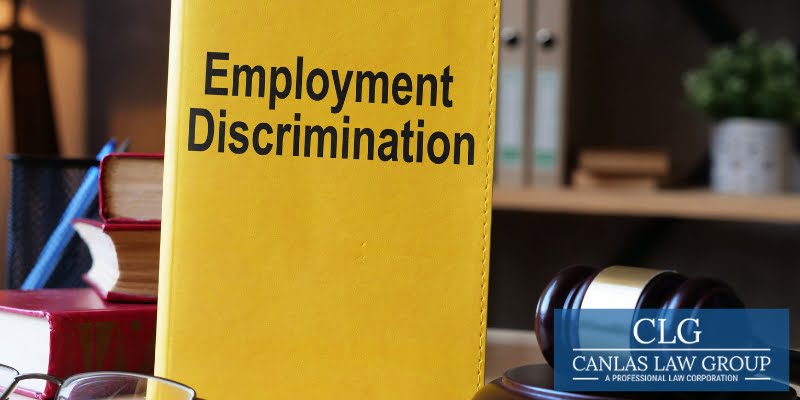Top rated lawyers for employment discrimination claims are crucial for navigating the complex legal landscape. Facing unjust treatment at work can be incredibly stressful, and having the right legal advocate is paramount. This guide delves into finding the best legal representation to fight for your rights and secure the justice you deserve. We’ll explore what makes a lawyer “top-rated,” the different types of discrimination cases they handle, and how to find the perfect fit for your situation.
Prepare to learn how to effectively navigate this challenging process and reclaim your workplace dignity.
From understanding the criteria for evaluating a lawyer’s expertise to identifying the various forms of employment discrimination—race, gender, age, disability, religion, and more—we’ll equip you with the knowledge to make informed decisions. We’ll also guide you through the process of finding and vetting top-rated lawyers, covering crucial aspects like effective communication, understanding legal fees, and building a strong client-lawyer relationship.
Ultimately, this guide aims to empower you to confidently pursue your claim and achieve a positive outcome.
Defining “Top Rated” in the Context of Employment Discrimination Lawyers

Finding the right legal representation for an employment discrimination claim can feel overwhelming. Navigating complex laws and procedures requires a lawyer with proven expertise and a strong track record of success. But what exactly constitutes a “top-rated” employment discrimination lawyer? This isn’t simply about name recognition; it’s about a combination of factors that demonstrate consistent competence and a commitment to client well-being.Identifying a truly top-rated lawyer involves a thorough assessment of several key criteria.
These indicators offer a comprehensive view of their skills, experience, and dedication to achieving favorable outcomes for their clients.
Criteria for Evaluating Top-Rated Employment Discrimination Lawyers
The ranking of an employment discrimination lawyer isn’t arbitrary. Several factors contribute to a lawyer’s reputation and standing within the legal community. These factors offer a robust framework for evaluation.
| Criterion | Description | Example | Significance |
|---|---|---|---|
| Years of Experience | Length of time practicing employment law, specifically focusing on discrimination cases. | A lawyer with 15+ years of experience handling discrimination cases possesses a deep understanding of evolving legal precedents and effective litigation strategies. | Experience translates to expertise, allowing lawyers to anticipate challenges and develop effective solutions. |
| Case Success Rate | Percentage of cases resulting in favorable outcomes for clients (settlements or court victories). | A lawyer consistently achieving high settlement rates or winning cases in court demonstrates their skill in negotiation and litigation. | This metric offers a tangible measure of a lawyer’s effectiveness in achieving positive results for their clients. |
| Client Testimonials and Reviews | Feedback from past clients detailing their experiences with the lawyer’s services, communication, and overall effectiveness. | Numerous positive reviews praising a lawyer’s responsiveness, clear communication, and successful representation. | Client feedback provides valuable insights into a lawyer’s work ethic, communication style, and ability to build trust and rapport. |
| Awards, Recognitions, and Memberships | Professional accolades and affiliations indicating expertise and commitment to the field of employment law. | Inclusion in “Best Lawyers” lists, receipt of prestigious awards, and active membership in relevant professional organizations. | These distinctions validate a lawyer’s skill, commitment to excellence, and standing within the legal community. |
The Importance of Client Reviews and Testimonials
Client reviews and testimonials offer invaluable insights into a lawyer’s performance beyond objective metrics. They provide a window into the client experience, encompassing factors like communication, responsiveness, and the overall feeling of being supported and represented effectively. These testimonials offer a human element to the evaluation process, allowing potential clients to connect with the lawyer’s approach and personality.
“From the initial consultation to the final settlement, Attorney Smith was incredibly professional, responsive, and empathetic. He clearly explained the legal process, kept me informed every step of the way, and ultimately secured a far better outcome than I ever anticipated. I highly recommend his services to anyone facing employment discrimination.”
Jane Doe, Satisfied Client
Navigating employment discrimination claims requires the expertise of top-rated lawyers, ensuring your rights are protected. Just as securing your belongings is crucial, understanding the financial safeguards you need is equally important; check out this article on what are the benefits of having renters insurance for apartment dwellers to learn more about protecting your assets. Returning to legal matters, remember that finding the right legal representation can make all the difference in securing a just outcome in your employment discrimination case.
Examples of Awards, Recognitions, and Memberships
Awards, recognitions, and memberships serve as external validation of a lawyer’s expertise and commitment to their field. These achievements signal a consistent track record of success and dedication to excellence.
- Inclusion in Super Lawyers or Best Lawyers lists.
- Recognition by national employment law organizations, such as the National Employment Lawyers Association (NELA).
- Awards for excellence in employment law from bar associations or legal publications.
- Membership in prestigious legal organizations reflecting specialized expertise in employment discrimination.
Locating and Vetting Top-Rated Lawyers

Finding the right legal representation for an employment discrimination claim can feel overwhelming. The stakes are high, and choosing the wrong lawyer could significantly impact your case’s outcome. This section Artikels effective strategies for locating and thoroughly vetting top-rated employment discrimination lawyers to ensure you’re in the best possible hands.
Several avenues exist for discovering highly-qualified legal professionals specializing in employment discrimination. A strategic approach, combining various methods, will maximize your chances of finding the perfect fit.
Methods for Finding Top-Rated Employment Discrimination Lawyers
A multi-pronged approach to your search will yield the best results. Don’t rely on a single method; instead, combine several to create a comprehensive picture of available lawyers and their qualifications.
- Online Legal Directories: Websites like Avvo, Martindale-Hubbell, and Justia provide lawyer profiles, ratings, and client reviews. These platforms offer a starting point for your research, allowing you to filter by specialization, location, and client ratings.
- Professional Organizations: Organizations such as the American Bar Association (ABA) and state bar associations often maintain member directories. These directories can help you identify lawyers specializing in employment law and discrimination cases within your area.
- Referrals: Seek recommendations from trusted sources such as friends, family, colleagues, or other professionals who have dealt with similar legal matters. Personal referrals can offer valuable insights into a lawyer’s competence, communication style, and overall effectiveness.
- Law Firm Websites: Many employment law firms maintain detailed websites outlining their areas of expertise, attorney biographies, and client testimonials. Reviewing these websites can provide a comprehensive overview of a firm’s capabilities and experience.
Checklist of Questions for Initial Consultations
The initial consultation is crucial for assessing a lawyer’s suitability. Asking well-defined questions helps determine if their expertise, approach, and communication style align with your needs and expectations.
| Experience | Fees & Payment | Communication & Availability | Case Strategy & Expectations |
|---|---|---|---|
| How many employment discrimination cases have you handled similar to mine? Can you provide examples of successful outcomes? What is your win rate in such cases? | What are your fees and billing practices? Do you offer payment plans? What are the potential additional costs associated with my case? | How often will I receive updates on my case’s progress? What is your preferred method of communication? How responsive are you to client inquiries? | What is your strategy for handling my case? What is the likely timeline for resolution? What are the realistic outcomes I can expect? What are the potential risks and challenges? |
Reviewing a Lawyer’s Track Record and Experience
Examining a lawyer’s past performance is paramount. A proven track record of success in handling similar cases indicates their competence and ability to achieve favorable outcomes. This involves more than just looking at win/loss ratios; it’s about understanding the complexity of the cases handled and the strategies employed to secure positive results.
Finding top-rated lawyers for employment discrimination claims requires thorough research. The process is similar to finding legal representation for other serious matters, like the steps outlined in this helpful guide on how to find a good lawyer for a personal injury case. Ultimately, securing a skilled advocate is crucial whether you’re facing workplace injustice or a personal injury.
Choosing the right lawyer for your employment discrimination case can significantly impact the outcome.
For example, one lawyer successfully represented a client who faced wrongful termination due to age discrimination. The lawyer meticulously gathered evidence, including emails and performance reviews, demonstrating the employer’s discriminatory intent. Through skillful negotiation and preparation for trial, the lawyer secured a significant settlement for their client, exceeding the initial demand and covering lost wages, benefits, and emotional distress.
The Client-Lawyer Relationship in Employment Discrimination Cases

Navigating the complexities of an employment discrimination case can be incredibly challenging. A strong and trusting relationship between client and lawyer is paramount to achieving a successful outcome. Open communication, mutual respect, and a shared understanding of the legal process are essential building blocks for this crucial partnership.Effective communication and trust are fundamental to a successful client-lawyer relationship in employment discrimination cases.
Without these elements, the case’s progress and ultimate success can be severely hampered.
Effective Communication and Trust
Building a strong client-lawyer relationship hinges on open and honest communication. This involves regular updates, prompt responses to inquiries, and a clear explanation of legal strategies and potential outcomes. The lawyer should actively listen to the client’s concerns and perspectives, ensuring their voice is heard and valued throughout the process. This collaborative approach fosters trust and empowers the client to actively participate in their case.
- Regular communication: Scheduled meetings and updates on case progress are essential.
- Honest and transparent communication: The lawyer should clearly explain the legal complexities, potential challenges, and realistic expectations.
- Active listening: The lawyer should listen carefully to the client’s concerns and perspectives, validating their experiences.
- Accessible communication: The lawyer should provide various communication channels, accommodating the client’s preferences.
- Mutual respect: Both parties should treat each other with respect and professionalism.
The Lawyer’s Role in Guiding Clients Through Emotional and Legal Complexities
Employment discrimination cases are often emotionally taxing. The lawyer acts not only as a legal advisor but also as a source of support, helping clients navigate the emotional turmoil while strategically pursuing their legal claim. They should be empathetic, understanding the psychological impact of discrimination, and providing guidance on coping mechanisms and self-care.For instance, imagine Sarah, who experienced blatant gender discrimination at her workplace.
Her lawyer, understanding her emotional distress, scheduled regular check-ins beyond legal updates, offering empathetic listening and suggesting resources for emotional support. He carefully explained each legal step, ensuring she felt informed and in control, ultimately leading to a successful settlement. This holistic approach, combining legal expertise with emotional support, is crucial in these sensitive cases.
Understanding Legal Fees and Payment Structures, Top rated lawyers for employment discrimination claims
Transparency regarding legal fees is vital. Clients need a clear understanding of the costs involved, including how fees are calculated and what payment options are available. Different lawyers employ different fee structures, so open discussion is crucial.
Hourly Fees: This is a common structure where clients are billed based on the lawyer’s hourly rate multiplied by the time spent on the case.
Contingency Fees: In this structure, the lawyer’s fee is a percentage of the recovery obtained. This means the lawyer only gets paid if the client wins the case.
Hybrid Fees: Some lawyers use a combination of hourly and contingency fees, offering a blend of predictable costs and incentive-based payment.
It’s essential for clients to carefully review and understand the fee agreement before proceeding. Questions regarding payment plans, expenses, and potential additional costs should be addressed proactively to avoid misunderstandings later.
Successful Strategies and Outcomes: Top Rated Lawyers For Employment Discrimination Claims

Winning employment discrimination cases hinges on a strategic approach combining meticulous evidence gathering, compelling legal arguments, and a deep understanding of relevant laws. The right strategy, skillfully executed, can significantly impact the outcome, leading to favorable settlements or court judgments.
Effective legal strategies are crucial for achieving positive outcomes in employment discrimination cases. These strategies are often tailored to the specific facts of each case, but several common approaches consistently prove successful.
Common Legal Strategies in Successful Employment Discrimination Cases
Several key legal strategies are frequently employed in successful employment discrimination cases. The following table categorizes and compares these strategies, highlighting their strengths and applications.
| Strategy | Description | Strengths | Limitations |
|---|---|---|---|
| Direct Evidence | Direct proof of discriminatory intent, such as a discriminatory statement by the employer. | Strongest form of evidence; can be highly persuasive. | Rarely available; difficult to obtain. |
| Circumstantial Evidence | Indirect evidence suggesting discriminatory intent, such as disparate treatment of similarly situated employees. | More readily available than direct evidence; can build a strong case cumulatively. | Requires careful analysis and presentation to establish a convincing narrative. |
| Statistical Evidence | Data showing discriminatory patterns in hiring, promotion, or termination decisions. | Provides objective support for claims of systemic discrimination. | Requires expertise in statistical analysis; may not be applicable to all cases. |
| Comparative Evidence | Demonstrating that similarly situated employees of a different protected group were treated more favorably. | Highlights discriminatory treatment by comparing the plaintiff’s experience to that of others. | Requires identifying truly comparable employees, which can be challenging. |
The Importance of Strong Evidence Gathering and Presentation
The success of any employment discrimination case rests heavily on the strength and presentation of the evidence. Meticulous evidence gathering is paramount, ensuring all relevant information is collected and preserved.
Consider this hypothetical scenario: An employee, Sarah, believes she was denied a promotion due to her gender. Effective evidence gathering would include: (1) Documentation of Sarah’s qualifications and performance reviews; (2) Documentation of the qualifications and performance reviews of the male employee who received the promotion; (3) Emails and memos reflecting any gender-biased comments from supervisors; (4) Testimony from colleagues who witnessed discriminatory behavior; (5) Company policies and procedures regarding promotions.
This comprehensive approach ensures a robust case.
Examples of Successful Settlements or Judgments
Several factors contribute to successful outcomes in employment discrimination cases. The following examples illustrate the impact of strong evidence and effective legal strategies.
- A case involving age discrimination resulted in a significant settlement after the plaintiff presented compelling evidence of ageist remarks made by the employer and a pattern of younger employees being promoted over more experienced, older workers.
- A successful racial discrimination lawsuit resulted in a substantial jury verdict due to the plaintiff’s presentation of overwhelming evidence of disparate treatment, including statistical analysis showing a significant disparity in promotion rates between racial groups.
- A case alleging gender discrimination led to a favorable settlement after the plaintiff’s attorney effectively demonstrated that the plaintiff was denied equal pay compared to male colleagues performing similar work, supported by detailed payroll records and job descriptions.


